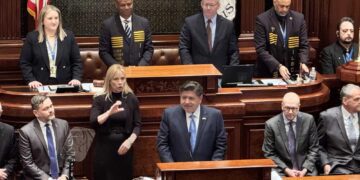Youth isn’t what makes millennials lonely. Daniel Cox, Ryan Streeter, and David Wilde write:
Millennials are less likely than baby boomers to attend religious services regularly. They are more geographically mobile, and they are less likely to be married. All these factors are strongly associated with feelings of loneliness. But what happens when we take account of these differences? Does the loneliness gap disappear?
Once you take account of religious attendance, marital status, and geographic mobility, millennials are not any lonelier than baby boomers. On the original unconverted loneliness scale (with scores ranging from 19 to 76), millennials register an average loneliness score significantly higher than baby boomers (41.4 versus 37.1). However, the gap diminishes when we compare millennials who attend religious services regularly with baby boomers who also attend regularly (38.9 versus 36). Comparing weekly attending millennials who are longtime residents in their community with baby boomers with similar characteristics shows an even smaller loneliness gap (38.3 versus 36). Finally, millennials who attend services regularly, are longtime residents, and are married are not any lonelier than baby boomers with this same profile (34.8 versus 34.9).
Another way to assess whether there is a unique generational effect on loneliness is to construct a multivariate regression model that simultaneously accounts for the many different ways young and older people differ. Younger Americans are more racially and ethnically diverse, less religiously engaged, more likely to be single, better educated, and more geographically mobile than older Americans. If after accounting for these differences, we find that being younger is still associated with greater feelings of loneliness, we know that something unique about younger Americans makes them more disposed to feelings of loneliness.
A preliminary model that measures the relationship between generational membership and loneliness finds millennials are significantly more likely than baby boomers to be lonely. However, a second multivariate model that controls for frequency of worship attendance, geographic mobility, and marital status, in addition to basic demographic characteristics—such as education level, race and ethnicity, gender, and region—finds that one’s generational cohort is no longer a significant predictor of loneliness. These results strongly suggest that millennials are not uniquely predisposed to feeling lonely; rather, the fact that they are more mobile, single, and secular explains their greater feelings of loneliness. [Internal citations omitted.]
[Daniel A. Cox, Ryan Streeter, and David Wilde, “A Loneliness Epidemic? How Marriage, Religion, and Mobility Explain the Generation Gap in Loneliness,” American Enterprise Institute, September 26]







